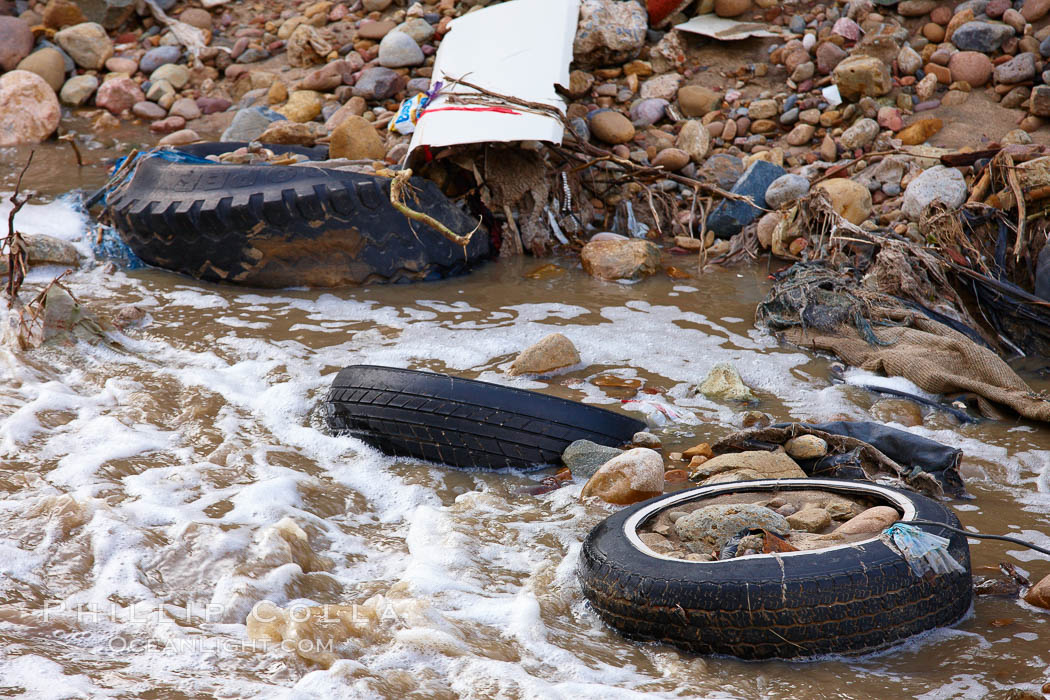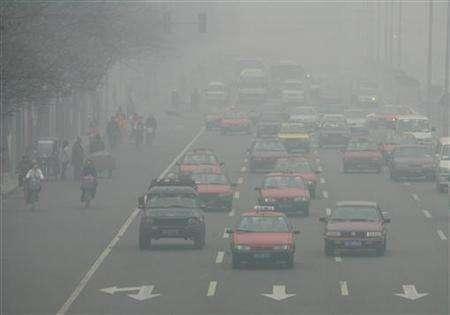- 40% of America’s rivers and 46% of America’s lakes are too polluted for fishing, swimming, or aquatic life.
- The Mississippi River – which drains the lands of nearly 40% of the continental United Sates – carries an estimated 1.5 million metric tons of nitrogen pollution into the Gulf of Mexico each year. The resulting dead zone in the Gulf each summer is about the size of New Jersey.
- 1.2 trillion gallons of untreated sewage, storm water, and industrial waste are discharged into US waters annually.
- Polluted drinking waters are a problem for about half of the world’s population. Each year there are about 250 million cases of water-based diseases, resulting in roughly 5 to 10 million deaths.
- Vehicle exhaust contributes roughly 60% of all carbon monoxide emissions nationwide, and up to 95% in cities.
- Large hog farms emit hydrogen sulfide, a gas that most often causes flu-like symptoms in humans, but at high concentrations can lead to brain damage.
- Each year, U.S. factories spew 3 million tons of toxic chemicals into the air, land, and water.
- In the U.S. 41% of all insecticides are used on corn. Of these, 80% are used to treat a pest that could be controlled simply by rotating a different crop for just one year.
- Every year, one American produces over 3,285 pounds of hazardous waste.
- Over 80% of items in landfills can be recycled, but they’re not.
- Americans generate 30 billion foam cups, 220 million tires, and 1.8 billion disposable diapers every year.
Source: Do Something
Releasing pollutants into the environment is not ethical, as it does not benefit society as a whole. However, it could improve one's station in life and improve their pleasure, for some of your biggest companies contribute greatly to the pollution levels worldwide. Atop each company is the people whose wealth is dependent up on cutting corners such as moving factories to countries with no environmental protection standards and laws. This never-ending need to gain wealth falls under the greed category. Some readers will argue that beneficence makes pollution ethical, but it would be selfish for us to assume that one's pleasure should be put above the whole.
Regardless of pollution being on the forefront in modern media, many Americans forget to care for their environment. We are blind to the impact that this cancer has on us until we witness the overall effects through our weather, wildfires, floods, etc. When catastrophic events happen, we open our eyes to the impact our carelessness has on the environment, that is until the news gets old, and we start flipping through our regularly broadcasting stations and our favorite television shows.
Hurricane Sandy, Hurricane Isaac, Hurricane Ike, Hurricane Rita, Hurricane Katrina, Texas Wildfires, California Wildfires, Colorado Wildfires, New Mexico Wildfires, Shifting Seasons, Drought Across the South, Prolonged Intense Summers, Massive Tornados, etc.
As Christians, we have a responsibility to care for our planet.
So God created mankind in his own image, in the image of God he created them; male and female he created them. God blessed them and said to them, “Be fruitful and increase in number; fill the earth and subdue it. Rule over the fish in the sea and the birds in the sky and over every living creature that moves on the ground.” (NIV Genesis 1:27-28)
The Lord God took the man and put him in the Garden of Eden to work it and take care of it. (NIV Genesis 2:15)
God may have given mankind dominion over the earth, but he also gave us the responsibility of caring for the earth. Sure, life would be more difficult if we abruptly ended our ever-growing dependence on fossil fuels. Many of us have chosen to pass the responsibility off to future generations, and that is also due to the fact that our forefathers have passed the responsibility off to us throughout the years. In the past, it was due to ignorance, as mankind did not fully understand his/her environmental impact.
Now that we are fully aware of the impact, we need to take up the responsibility and do what we can to heal the cancer that we have placed upon the back of the third rock that we call home. After all, we did not come upon this responsibility on our own. It is a responsibility that God has bestowed upon us, and I do not think that this is what God meant.
For information on what you can do to reduce your impact on the environment: EPA







No comments:
Post a Comment